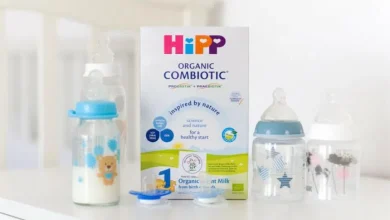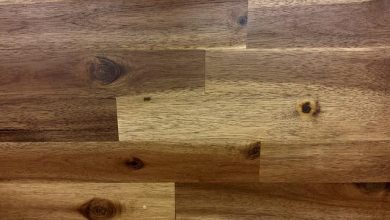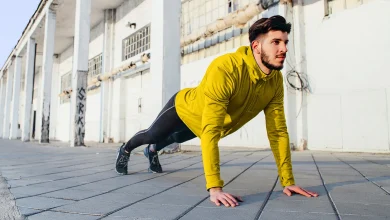Vitamin E: Your Protection From Oxidative Stress

Key Points
- Vitamin E is known as an essential fat-soluble vitamin that is stored in the liver and the tissues of our body when absorbed. While it is a popular supplement sold in the market, Vitamin E can also be found in natural food sources.
- A study suggests that as people age, they tend to eat less resulting in decreased intake of vitamins and minerals, causing age-related nutritional problems. To avoid this, you should understand how your food and lifestyle choices affect your health.
- According to studies, Vitamin E has numerous benefits for our body. Aside from its anti-ageing and anti-inflammatory properties, it also helps protect our vision, circulation, brain functions and eye health.
- Ageing is an inevitable process not only in the chronological sense but also in the biological sense. Taking vitamin E as part of your diet is a helpful antioxidant that slows down the process of ageing, protecting your cells from oxidative stress.
- Free radicals are molecular species affecting our cells, proteins, and DNA. It forms due to many factors, such as food digestion, consumption of alcohol, exposure to tobacco smoke, inhalation of air pollutants and many more.
- Because our body’s ability to fight free radicals decreases when we age, taking vitamin E helps prevent oxidative damage that leads to degenerative processes. This affects our body age or what we refer to as biological ageing.
It has been proven over and over again that having healthy food choices and lifestyle significantly impacts our bodies. We’ve long been accustomed to the fact that eating healthy and taking vitamins and supplements are good for our overall wellness. Aside from keeping all our organs in top shape, it also contributes to our general appearance, especially while we age.
Ageing is one of the things many people don’t want to talk about. While many are concerned about getting fine lines and wrinkles, many also associate getting old with a multitude of diseases. Although getting up in years is inevitable for everyone, we can take lifestyle measures and alterations to ensure that our body does not appear and feel older than our chronological age.
While we age, we tend to eat less resulting in decreased intake of vitamins and minerals, causing age-related nutritional problems. This is the reason why it is important to understand your biological age. A health assessment like a body age test will show how your food and lifestyle choices affect your body’s ageing.
One of the most popular supplements that are often associated with ageing is vitamin E. You have probably seen advertisements for this vitamin that promotes healthy skin, strengthens the immune system, and has cell-protecting properties against oxidative stress. While all of these are true, let’s deep dive into what this vitamin really is and how important it is in maintaining our health to the optimum level.
What is Vitamin E?
Similar to vitamins A, D and K, vitamin E, or tocopherol, is a fat-soluble vitamin that is stored in the liver and the fatty tissues of our body, meaning it is best absorbed with food. It has a reputation for contributing positively to our vision, heart health, blood circulation, immune system, reproduction, brain functions, and eye health. In addition, it also helps with skin nourishment due to its anti-ageing and anti-inflammatory properties.
Vitamin E supplements are widely available in the market in the form of capsules, skin care products, oil drops, and many more. While you can take oral supplements to support your overall health, you can also get your recommended daily vitamin E requirements from food sources. This includes:
- Fruits like avocado, kiwi, and mango;
- Vegetables such as green leafy like chard and spinach, broccoli, sweet peppers and asparagus;
- Vegetable oils like wheat germ, safflower, sunflower, corn and soybean oils;
- Nuts like almonds, pine nuts, peanuts and hazelnuts;
- Seeds like sunflower seeds;
- Fish such as salmon and trout.
How does Vitamin E help with Ageing?
Loose electrons, commonly known as free radicals, are damaging molecular species affecting our cells, proteins and DNA. Free radicals become present in our bodies due to many factors. It includes food digestion, consumption of alcohol, exposure to tobacco smoke, inhalation of air pollutants and many more.
When the presence of free radicals gets overwhelming for our body, it can be harmful and may trigger certain diseases. When our body ages, it gets difficult to fight free radicals. This often results in more oxidative damage that leads to degenerative processes, affecting our body age or what we refer to as biological age.
Classified as an antioxidant, vitamin E can save our cells from free radicals from breaking down. Because it possesses potent antioxidant properties, it can neutralise free radicals helping protect our tissues and body organs from oxidative stress.
Aside from vitamin E’sE’s ability to protect our body from free radicals, it can also boost collagen production, which influences the fast cell regeneration process; hence it is often recommended in skincare.
Vitamin E Deficiency
According to the National Institute of Health, the recommended amount of vitamin E for adults is 15mg daily (22 IU). However, because the supplement forms available in the market contain much higher amounts and may involve risks, the NIH sets an upper limit of 1,000 mg or 1,500 IU for natural vitamin E supplements and 1,100 IU for synthetic vitamin E daily.
While vitamin E can be obtained from your diet and supplements, vitamin E deficiency is still possible if you are not getting enough of this nutrient. People who have low vitamin E intake are potentially at risk for having the symptoms such as:
- nerve pain or neuropathy;
- muscle weakness;
- numbness or tingling sensation;
- movement or coordination problems;
- decreased immune function;
- vision problems.
Even though vitamin E deficiency is rare in most healthy individuals, consulting your doctor is important to get a proper diagnosis as these symptoms of vitamin E deficiency are vague and can also be due to underlying diseases. Those with health conditions that affect the proper fat absorption or digestion, such as Crohn’sCrohn’s disease, cystic fibrosis, and a genetic disease called Abetalipoproteinemia, are at higher risk for developing vitamin E deficiency.
Take Away
Vitamin E, like other vitamins and minerals, is just one of the essential supplements needed by our body. While it is good to ensure adequate vitamin intake, it is always best to work with health professionals to assess your general wellness, including your vitamin E levels.
Remember, ageing is beyond our control. But while we can’t do anything about our chronological ageing, we can always practise healthy measures to protect our biological age and improve our quality of life.











